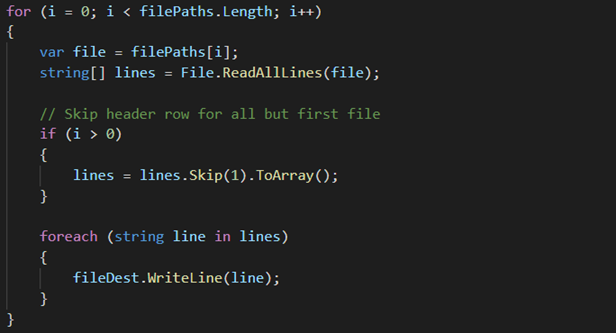The simple script below shows how to combine csv files without duplicating headings using C#. This technique assumes that all of the files have the same structure, and that all of them contain a header row.
using System.IO;
using System.Linq;
namespace CombineCsvFiles
{
class Program
{
static void Main(string[] args)
{
var sourceFolder = @"C:\csv_files";
var destinationFile = @"C:\csv_files\csv_files_combined.csv";
// Wildcard search returns files with 1-2 digit suffix
string[] filePaths = Directory.GetFiles(sourceFolder, "csv_file_??.csv");
StreamWriter fileDest = new StreamWriter(destinationFile, true);
int i;
for (i = 0; i < filePaths.Length; i++)
{
var file = filePaths[i];
string[] lines = File.ReadAllLines(file);
// Skip header row for all but first file
if (i > 0)
{
lines = lines.Skip(1).ToArray();
}
foreach (var line in lines)
{
fileDest.WriteLine(line);
}
}
fileDest.Close();
}
}
}
